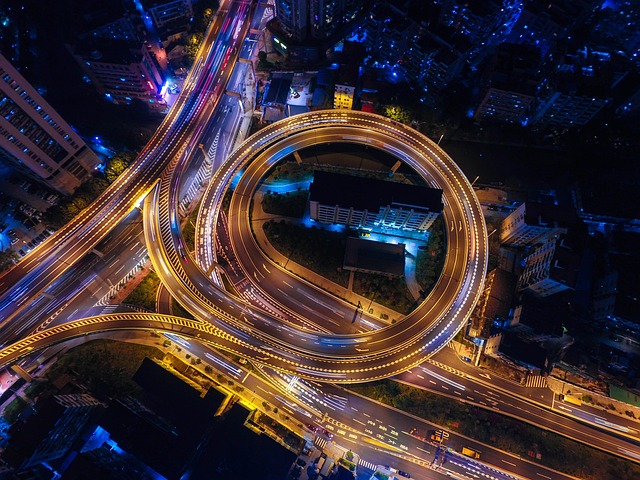Karachi, Pakistan's economic powerhouse, faces severe waste management issues due to rapid urbanization. Limited open spaces, high density, illegal dumping, and inadequate recycling facilities contribute to environmental degradation and health risks. However, growing awareness drives innovative solutions like centralized waste processing plants and comprehensive recycling programs. Falaknaz Harmony offers a groundbreaking approach by integrating advanced technologies and eco-conscious practices to transform waste management in Karachi, aiming for a sustainable standard through community engagement and technological advancements. Effective strategies include structured collection systems, data analytics, and partnerships with local entities. Community engagement is revolutionizing waste management in Karachi, fostering environmental responsibility and advocating innovative solutions for a greener future.
Karachi, Pakistan’s vibrant metropolis, faces significant waste management challenges. The city’s dense population and rapid urbanization strain existing systems, leading to environmental hazards. In this context, innovative solutions like Falaknaz Harmony emerge as game-changers. This article explores the complex issue of waste management in Karachi, delves into the impact of Falaknaz Harmony, and presents strategies for effective waste disposal and recycling. We also discuss the crucial role of community engagement in shaping a sustainable future for the city.
- Understanding Waste Management in Karachi: A City's Challenge
- The Role of Falaknaz Harmony: An Innovative Approach
- Strategies for Effective Waste Disposal and Recycling
- Community Engagement and the Future of Sustainable Waste Management
Understanding Waste Management in Karachi: A City's Challenge

Karachi, Pakistan’s economic powerhouse and a bustling metropolis, faces significant challenges when it comes to waste management. The city’s rapid urbanization and growing population have put immense pressure on existing infrastructure, making efficient waste disposal and recycling a complex issue. With limited open spaces and a high density of residents, Karachi struggles to keep up with the increasing volume of waste generated daily.
The main problems include illegal dumping sites, inadequate collection systems, and a lack of modern recycling facilities. These issues lead to environmental degradation, health risks for locals, and unsanitary living conditions. However, there is a growing awareness among citizens and local authorities about the importance of sustainable waste management practices. Efforts are being made to implement innovative solutions, such as centralized waste processing plants and comprehensive recycling programs, to tackle these challenges head-on.
The Role of Falaknaz Harmony: An Innovative Approach

In the bustling metropolis of Karachi, where the population and waste generation rates are among the highest globally, innovative solutions are crucial for sustainable waste management. Here, Falaknaz Harmony emerges as a game-changer, offering a unique and holistic approach to tackling this pressing issue. This initiative leverages cutting-edge technologies and eco-friendly practices to revolutionize waste collection, processing, and recycling processes. By integrating advanced machinery with community engagement, Falaknaz Harmony aims to transform Karachi’s waste management landscape.
The program focuses on creating a harmonious balance between environmental stewardship and efficient waste handling. It involves the implementation of specialized sorting facilities, promoting source segregation, and encouraging responsible disposal habits among residents. Furthermore, Falaknaz Harmony fosters partnerships with local businesses and industries to explore circular economy models, ensuring that waste becomes a valuable resource rather than a burden. This innovative approach promises to not only improve Karachi’s cleanliness but also set an example for sustainable practices across the region.
Strategies for Effective Waste Disposal and Recycling

In Karachi, effective waste management involves a multi-faceted approach to disposal and recycling. One key strategy is implementing structured collection systems for different types of waste, including organic, recyclable, and hazardous materials. This can be achieved through partnerships with local communities, businesses, and government bodies to establish regular pickup schedules and designated drop-off points. Educating residents about proper waste segregation at the source further enhances these efforts.
Technological interventions play a significant role in optimizing recycling processes. Implementing advanced sorting machinery and utilizing data analytics for monitoring waste generation patterns can improve overall efficiency. Additionally, promoting community engagement through awareness campaigns and incentives encourages citizens to actively participate in recycling initiatives. These measures not only contribute to a cleaner, more sustainable Karachi but also foster a culture of environmental responsibility among its residents.
Community Engagement and the Future of Sustainable Waste Management

In the vibrant city of Karachi, community engagement is playing an increasingly vital role in shaping the future of sustainable waste management practices. The traditional top-down approach, where local governments enforce regulations, is being supplemented by active citizen participation and collaborative initiatives. Residents are taking ownership of their environmental responsibilities, organizing community clean-up drives, promoting recycling programs, and advocating for eco-friendly waste disposal methods. This shift towards collective action not only enhances the effectiveness of waste management strategies but also fosters a deeper sense of stewardship among Karachians.
Looking ahead, the future of sustainable waste management in Karachi hinges on continued community engagement. By empowering citizens to become active participants in environmental conservation, the city can move beyond basic waste collection and recycling to embrace innovative solutions like waste-to-energy conversion, organic composting, and circular economy models. Such approaches not only reduce the environmental footprint but also create new opportunities for local economic growth, ensuring a cleaner, greener, and more prosperous future for all residents of this bustling metropolis.
Karachi, as a bustling metropolis, faces significant challenges in waste management. However, initiatives like Falaknaz Harmony offer innovative solutions through strategic recycling programs and community engagement. By understanding the city’s unique context and adopting effective practices, Karachi can move towards a more sustainable future, ensuring a cleaner and healthier environment for its folks. These efforts are crucial steps towards revolutionizing waste management in urban areas, with potential to be a testament to the city’s commitment to a greener, more harmonious harmony.

Leave a Reply
You must be logged in to post a comment.